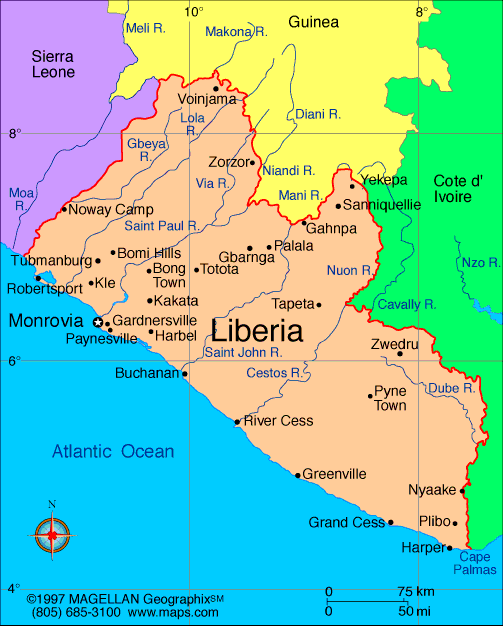
Liberia lies on the west coast of Africa. The name comes from the English word “liberty” and refers to the nation’s origin as a colony of free Africans repatriated to Africa from the United States. In fact, Liberia’s capital, Monrovia, was named after our President James Monroe. Even though the official language of Liberia is English, there are more than 20 indigenous languages, a few of which have their own unique alphabets.
It is comparable in size to Tennessee. Liberia’s dense, humid rainforests – some of the most extensive in West Africa – are alive with the screeching and twittering of hundreds of birds, who are kept company by forest elephants, pygmy hippos and other wildlife padding around the forest floor. Along the coast, there are deserted white-sand beaches that alternate with river deltas and tidal lagoons.
Liberia is known as the home of the “classical” African mask. The artistic ability of its wood carvers is widely recognized. Many masks are commissioned by the Poro and Sande societies for use in their initiation rituals; some powerfully charged masks may be seen only by initiates, while others are used in public masquerades. The range of forms produced by carvers is impressive as is the continuity of some styles over time. Other indigenous art forms include murals painted on the exterior walls of buildings, pottery, weaving, music, and dance.
Not only does Liberia have a rich literary tradition, which has existed for over a century, Liberia has its own ancient music and instruments. While Liberian music is part of wider West African music heritage, it is also distinct from its neighbors. There are several different types of drums used in traditional music.
Leave a Reply